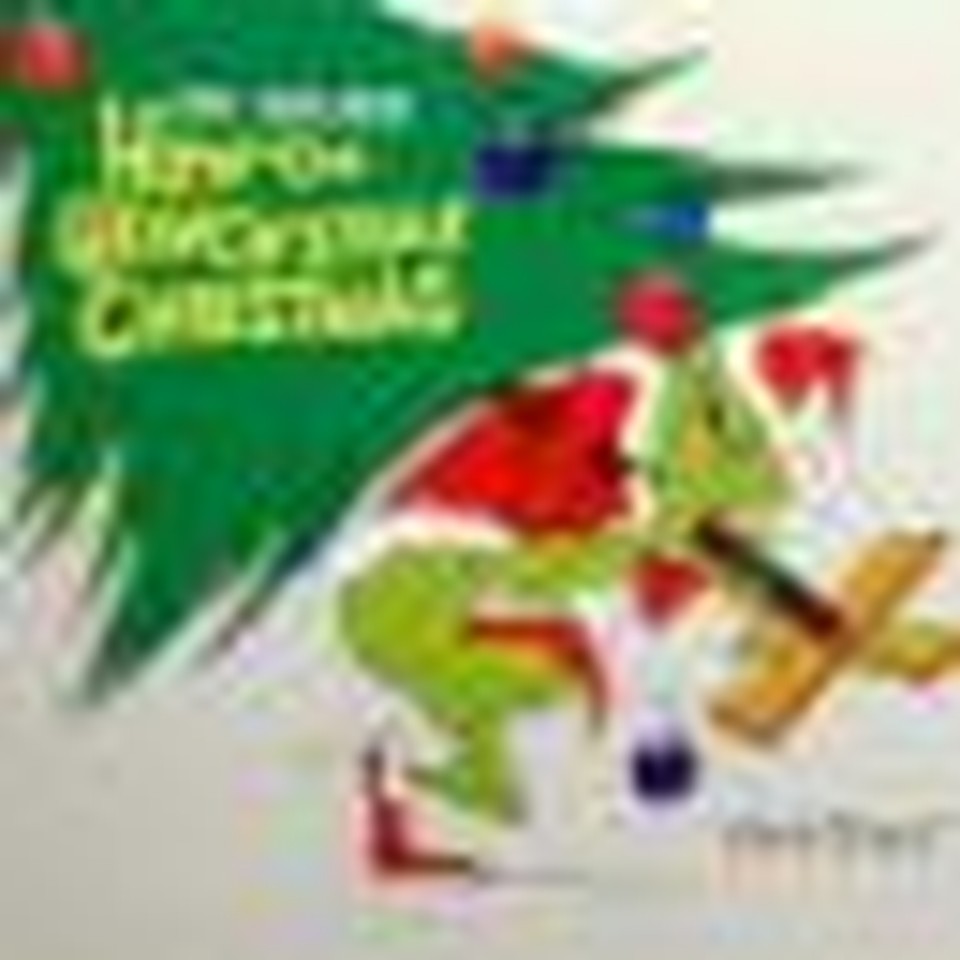The Christmas Story That's Really about Easter

It's officially known as "How the Grinch Stole Christmas," but it seems to me it should really be "How the Grinch Stole Christmas and Got Easter Instead."
To my mind, at least, Dr. Seuss' quintessential holiday story (in its original incarnation as a children's book, not the animated special or Jim Carrey's ghastly film version) has much more in common with Jesus' resurrection on Easter than his first birthday on Christmas.
Let me explain.
There are all of these lovely Christmas stories -- or stories that purport to be about Christmas -- that I grew up reading and watching on television. But, as a student of theology, I can't help but notice that none of my favorite Christmas tales has very much, if anything, to do with the actual Christmas story.
"Rudolph the Red-Nosed Reindeer," "Frosty the Snowman," and even "A Charlie Brown Christmas," are all nice, moral tales about values and the "true meaning of Christmas" (whatever that means) but none really comes close to telling the story of Christ's birth, even in a metaphorical sense.
My favorite non-biblical Christmas story has always been "How the Grinch Stole Christmas." That, for sure, could have nothing to do with the Christ story from the Gospel of Luke, right?
Well, yes and no.
"The Grinch" is a tale of grace and redemption, in the same vein as "The Pilgrim's Progress." But I dare say far more people can quote more easily from "Grinch" than from John Bunyan's Christian epic.
The Grinch character and his story have resonated with generations of children and adults. And it's not just the cool Seussical rhyming couplets. Or the whimsical illustrations. Or Max the Dog.
The universal message that even the worst of the worst -- a nasty, thieving Grinch with a heart two sizes too small -- can be redeemed, gives us pause.
Seuss' Grinch is a classical character that reminds me not of an evil king who tried to have the baby Jesus killed, according to Gospel accounts, but of St. Paul, the poster boy for post-Easter Christianity.
The Grinch is part Ebenezer Scrooge, part pre-road-to-Damascus St. Paul and part outcast-turned-bully.
"Whatever the reason, his heart or his shoes, he stood there on Christmas Eve, hating the Whos, staring down from his cave with a sour, Grinchy frown at the warm lighted windows below in their town," Seuss tells us of the Grinch. "Then he got an idea. And awful idea. The Grinch got a wonderful, awful idea."
He decided to steal Christmas from Whoville.
Acts 9, the writer says of St. Paul (then known as Saul the Pharisee), "Meanwhile Saul, still breathing threats and murder against the disciples of the Lord, went to the high priest and asked him for letters to the synagogues in Damascus, so that if he found any who belonged to the Way, men or women, he might bring them bound to Jerusalem."
Both the Grinch and St. Paul wanted to steal the joy from the people who had it. Neither understood where true joy came from, until they encountered it for themselves.
For the Grinch, that moment came at one house in Whoville when he came face to face with little Cindy-Lou Who.
"She stared at the Grinch and said, 'Santy Claus, why, why are you taking our Christmas tree? WHY?"'
On the road to Damascus, the risen Christ, appearing in a bolt of light, asked the man who would be saint, "Saul, Saul, why do you persecute me?"
I'm not suggesting that we understand Cindy-Lou Who to be a Christ figure. (That role obviously belongs to the conduit for grace, the Grinch's beleaguered Max the Dog.) But she does represent a challenge to the Grinch's world view, the way Christ slapped Saul's world into a new orbit.
The Grinch's epiphany comes as he's about ready to tip the sleigh full of Who Christmas goodies off the top of Mt. Crumpit. He hears them singing. He hears their joy. He is transformed. He is, perhaps, born again.
Just like Saul, standing in the bolt of light.
And that is far more Easter than Christmas.
Even so, Seuss's winter tale of redemption is a spiritual evergreen, appropriate for the Advent season and the rest of the year.
Cathleen Falsani is the author of Sin Boldly: A Field Guide for Grace and the new book, The Dude Abides: The Gospel According to the Coen Brothers.
c. 2009 Religion News Service. Used with permission.
Original publication date: December 11, 2009
Originally published December 11, 2009.




